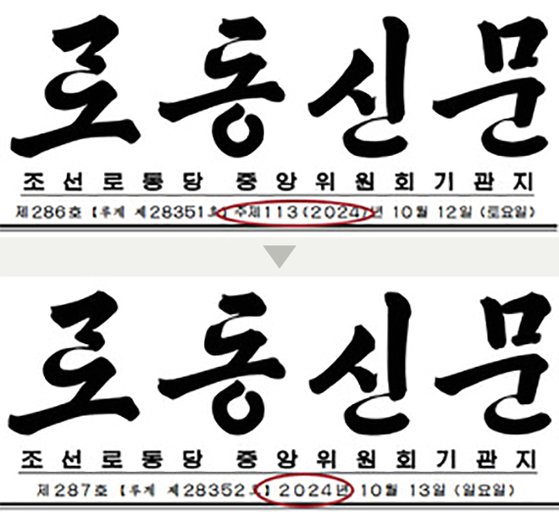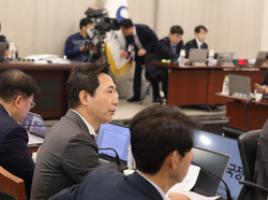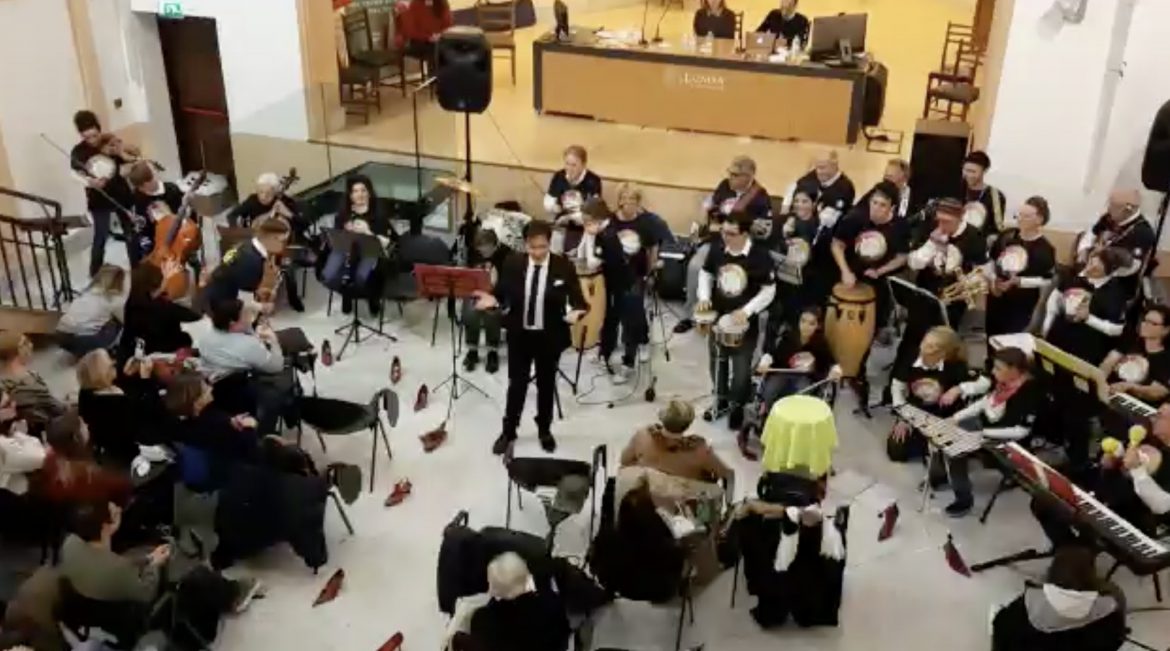North Korea disclosed on the 17th that its constitution defines the Republic of Korea as “a thoroughly hostile country.” Chairman Kim Jong-un first presented the theory of ‘two hostile countries at war’ at the Workers’ Party plenary meeting in December last year, and in less than a year, the work of codifying this into the highest law was completed. It appears that expressions such as ‘great national unity’ and ‘unification of the country’ that were included when the Socialist Constitution was adopted in 1972 were deleted, and in order to cut off Korea’s influence such as the Korean Wave, Kim Jong-un actually officially abolished the concept of nation and unification, which were the teachings of his predecessors Kim Il-sung and Kim Jong-il. It can be seen as having been done.
On this day, North Korea announced through state-run media that it had blown up the inter-Korean road and railway along the Gyeongui-Donghae Line and claimed that this was in accordance with the “requests of the Constitution of the Republic, which regulates the Republic of Korea as a thoroughly hostile country.”
At the top of the front page of the Rodong Sinmun, the notation ‘Juche 113 years’, which had been published until the 12th, disappeared from the 13th. [연합뉴스]
Initially, it was expected that North Korea would proceed with related constitutional amendments at the Supreme People’s Assembly held for two days from the 7th, but did not reveal any details about this while reporting the results of the meeting. By raising the need to reflect “the demands of a changing and developing revolution” in the constitution, it only left room for related discussions to take place.
Ten days after the meeting was held, North Korea disclosed the fact of the constitutional amendment as if it were a fait accompli, but did not announce any specific details. However, there is a possibility that Kim Jong-un may have modified the content of Article 9 of North Korea’s socialist constitution, which he pointed out in his speech at the Supreme People’s Assembly last January, saying, “The expressions ‘Northern half’, ‘independence, peaceful unification, and great national unity’ in the constitution should now be deleted.” big.
The article states, “The Democratic People’s Republic of Korea will strengthen the people’s government in the northern half of the country, vigorously carry out the three major revolutions of ideology, technology, and culture, achieve the complete victory of socialism, and realize national reunification on the principles of independence, peaceful unification, and great national unity.” “We fight for it.”
An official from the Ministry of Unification met with reporters on this day and said that it was believed that North Korea may have revised the constitution regarding the provision of hostile states. “The government strongly condemns this as an anti-unification and anti-national act that betrays the wishes of our people and North Korean residents for unification.” “He said.
It is not yet clear whether this constitutional amendment created new territorial provisions, such as drawing new boundaries on land and sea, or whether it included provisions for incorporating territory in the event of war. Some predict that these specific measures will be revealed sequentially.
This is because the mere formal abolition of the previous leader’s teachings could have significant ramifications internally. The fact that North Korea belatedly disclosed the fact of the constitutional amendment may be related to this. The fact that the concept of the theory of two hostile nations is still weak seems to have played a role.
At the same time, there is also a hint of an intention to maximize the effect through ‘constitutional salami’ tactics. Experts generally believe that Kim Jong-un may have decided that it was the right time to announce the constitutional amendment immediately after the explosion of the inter-Korean road, as North Korean people’s hostility toward South Korea is growing due to the drone incident.
Oh Gyeong-seop, a researcher at the Korea Institute for National Unification, said, “Constitutional revision is a measure so weighty that it can be said to be irreversible, so we are approaching it cautiously while simultaneously persuading executives and residents internally.”
Although he is showing his will to sever inter-Korean relations by even revising the Constitution for the first time in 52 years, the work ahead may be more difficult for Kim Jong-un. As the influence of Korean culture, including Korean dramas, grew rapidly within North Korea, leading to a phenomenon of ideological relaxation, especially among the young generation, the separation of North and South Korea was brought up to prevent this. am.
Accordingly, as Kim Jong-un emphasizes his authority, he is expected to slow down the work of blurring the status of his predecessors, including Kim Il-sung and Kim Jong-il, for the time being.
In fact, since the 13th, North Korea has not indicated the Juche era name, which refers to the year 1912, when Kim Il-sung was born, as ‘Juche 1’ in the Rodong Sinmun. However, another state-run media outlet, the Korean Central News Agency, still used the Juche era name. This is in line with North Korea replacing the name of Chairman Kim Il-sung’s birthday with ‘April 15’, ‘April Holiday’, and ‘Spring Holiday’ last April, but still using the existing name ‘Day of the Sun’, albeit in a limited manner.
Reporters Jeong Young-kyo and Lee Yu-jeong [email protected]


